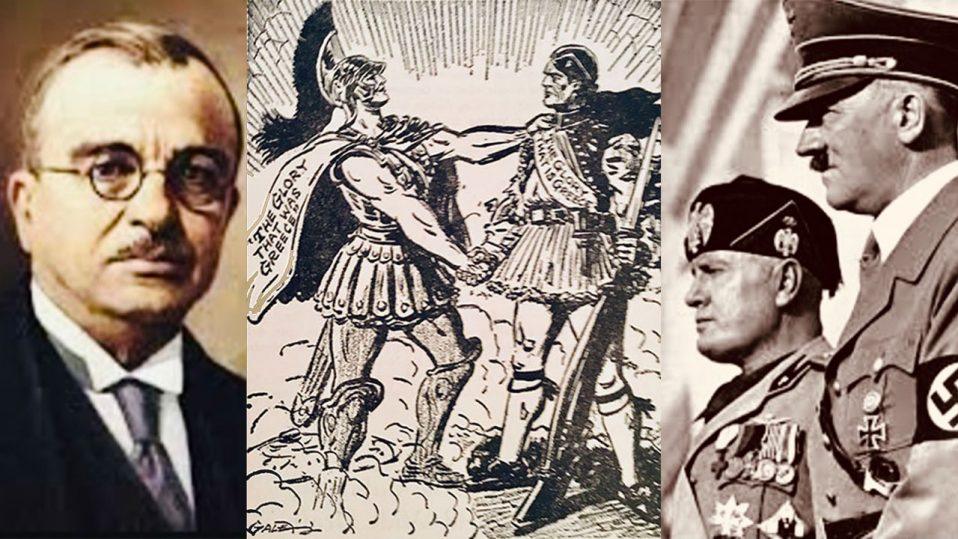Join us for EMBCA’s Annual OXI Day (October 28, 1940) Commemoration: “Freedom’s Shout to Tyranny- OXI !!!” Panel Discussion on Sunday, October 23, 2022 at 2 P.M. EST/ 9 P.M. EEST.. The panel discussion will be introduced and moderated by Lou Katsos, EMBCA's President. Our distinguished panel will include Hellenic General (R) Ilias Leontaris; Professor Steven Bowman Emeritus Judaic Studies Department University of Cincinnati; Author Dr. Christopher Lamb Research Fellow (R) at the National Defense University; Author/ Writer/ Historian and EMBCA Director Alexander Billinis; and Historian/ Researcher/ Author and EMBCA Director Peter Giakoumis. The program will include a musical presentation by well known Hellenic American Opera Singer Bass Baritone Costas Tsourakis singing a cappella Sofia Vembo songs of the period.
OXI Day (October 28, 1940) a national Hellenic holiday represents when the Hellenic Prime Minister Metaxas was awoken to respond to a series of demands from a representative of a WW2 Axis Power which would have allowed foreign troops free reign in Greece a neutral nation at the time. His response to these demands and the Hellenic people’s simple shout “OXI/NO” led to battles by the Hellenes of historical international consequences for Europe and the free world. It was the first time in the European theater that an Axis Power was defeated after them taking over country after country, raised the hopes of occupied Europe, and caused the Nazi forces which were scheduled to attack the Soviet Union (Operation Barbarossa) to divert their forces and invade Greece instead. This diversion led to a delay in the Nazi invasion of the U.S.S.R. and the Nazi’s eventual defeat there in the Soviet winter. As per the title of this event OXI Day was a turning point in WW2 and had an importance that went beyond the Hellenic Republic and a war international in scope. In addition, despite the ultimate Hellenic defeat, having fought long and hard , the bravery of the Hellenic people during those difficult six months also had the effect of changing how Hellenic Americans were perceived in America and Hellenes in general. In America it transformed them from being thought of as the “Other” to being finally accepted as Americans.

